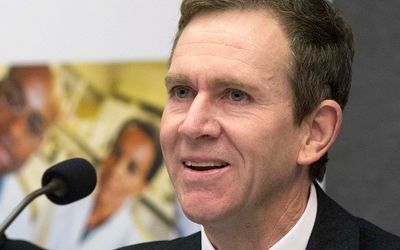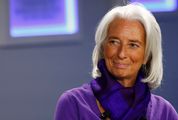COLLABORATION between multinational pharmaceutical companies and African researchers hunting for new drugs and vaccines offers opportunities for both sides, says the head of the Bill and Melinda Gates Foundation’s Health Programme, Trevor Mundel.
In exchange for access to multinational pharmaceutical companies’ research and development and libraries of potential drug candidates and vaccines, local scientists were helping drug manufacturers learn more about African markets, he said on Tuesday. The growing middle class in Africa has strong potential for pharmaceutical companies, he said.
"Africa is an important emerging market for pharmaceutical companies and there are more than 200 clinical trials under way in Africa."
Dr Mundel made his remarks in an interview shortly after the Medical Research Council and the University of Cape Town announced two new partnerships with the Gates Foundation for programmes seeking new drugs and vaccines for HIV/AIDS, tuberculosis and malaria.
The council’s Strategic Health Innovation Partnerships will get about R125m from the Gates Foundation, plus R130m from the Department of Science and Technology and R60m from the Department of Health for research into HIV/AIDS and TB vaccines over the next three years. The Gates Foundation will also give about R55m to the university’s Drug Discovery & Development Centre, H3-D, to develop novel drug candidates for TB and malaria. The unit has already received R50m from the partnerships and the Technology Innovation Agency.
The Gates Foundation’s investment in the council’s partnerships is the biggest of its kind to date, Dr Mundel said. "We’d love to have more, but it’s a question of finding the right partners."
The council had moved unusually quickly in setting up the project over the past year. "Typically, negotiations like this take years," he said.
The foundation made about $3.4bn in philanthropic investments each year, of which $600m went towards medical research and development, he said. By contrast, the pharmaceutical industry invested about $130bn in research and development a year, he said. "We really have to try to leverage our investments, hence the significance of government (commitments)."
The intellectual property rights of any new products developed with the partnerships’ support would be locally owned, and be held by the company or research institutions leading the work, said partnerships director Richard Gordon.
Council president Salim Abdool Karim said local ownership of the intellectual property did not necessarily mean the products would be cheap, but the partnerships’ involvement would provide leverage to negotiate lower prices.
Dr Mundel said the Gates Foundation’s grants had global access obligations, which include the rapid dissemination of the information and the product being made available at affordable prices to low-income countries.
He said the Gates Foundation was optimistic about the prospects of African researchers developing new medicines, echoing the upbeat tone of the annual letter from Microsoft founder turned philanthropist Bill Gates, published on Tuesday. Mr Gates predicted in his letter that by 2035 there will be almost no poor countries.
He said Africa was a far better place than it was 50 years ago, but work must continue to uplift the continent.
In the letter, he identifies three myths that block progress for the poor: that poor countries are doomed to stay poor, foreign aid is a big waste, and saving lives leads to overpopulation.
Usually the foundation’s annual letter focuses on its work and programmes for the coming year.
With Paul Vecchiatto

SYNERGIES: Collaboration between pharmaceutical companies and African researchers is vital, says Trevor Mundel of the Bill and Melinda Gates Foundation’s Health Programme. Picture: TREVOR SAMSON
COLLABORATION between multinational pharmaceutical companies and African researchers hunting for new drugs and vaccines offers opportunities for both sides, says the head of the Bill and Melinda Gates Foundation’s Health Programme, Trevor Mundel.
In exchange for access to multinational pharmaceutical companies’ research and development and libraries of potential drug candidates and vaccines, local scientists were helping drug manufacturers learn more about African markets, he said on Tuesday. The growing middle class in Africa has strong potential for pharmaceutical companies, he said.
"Africa is an important emerging market for pharmaceutical companies and there are more than 200 clinical trials under way in Africa."
Dr Mundel made his remarks in an interview shortly after the Medical Research Council and the University of Cape Town announced two new partnerships with the Gates Foundation for programmes seeking new drugs and vaccines for HIV/AIDS, tuberculosis and malaria.
The council’s Strategic Health Innovation Partnerships will get about R125m from the Gates Foundation, plus R130m from the Department of Science and Technology and R60m from the Department of Health for research into HIV/AIDS and TB vaccines over the next three years. The Gates Foundation will also give about R55m to the university’s Drug Discovery & Development Centre, H3-D, to develop novel drug candidates for TB and malaria. The unit has already received R50m from the partnerships and the Technology Innovation Agency.
The Gates Foundation’s investment in the council’s partnerships is the biggest of its kind to date, Dr Mundel said. "We’d love to have more, but it’s a question of finding the right partners."
The council had moved unusually quickly in setting up the project over the past year. "Typically, negotiations like this take years," he said.
The foundation made about $3.4bn in philanthropic investments each year, of which $600m went towards medical research and development, he said. By contrast, the pharmaceutical industry invested about $130bn in research and development a year, he said. "We really have to try to leverage our investments, hence the significance of government (commitments)."
The intellectual property rights of any new products developed with the partnerships’ support would be locally owned, and be held by the company or research institutions leading the work, said partnerships director Richard Gordon.
Council president Salim Abdool Karim said local ownership of the intellectual property did not necessarily mean the products would be cheap, but the partnerships’ involvement would provide leverage to negotiate lower prices.
Dr Mundel said the Gates Foundation’s grants had global access obligations, which include the rapid dissemination of the information and the product being made available at affordable prices to low-income countries.
He said the Gates Foundation was optimistic about the prospects of African researchers developing new medicines, echoing the upbeat tone of the annual letter from Microsoft founder turned philanthropist Bill Gates, published on Tuesday. Mr Gates predicted in his letter that by 2035 there will be almost no poor countries.
He said Africa was a far better place than it was 50 years ago, but work must continue to uplift the continent.
In the letter, he identifies three myths that block progress for the poor: that poor countries are doomed to stay poor, foreign aid is a big waste, and saving lives leads to overpopulation.
Usually the foundation’s annual letter focuses on its work and programmes for the coming year.
With Paul Vecchiatto























Post a comment